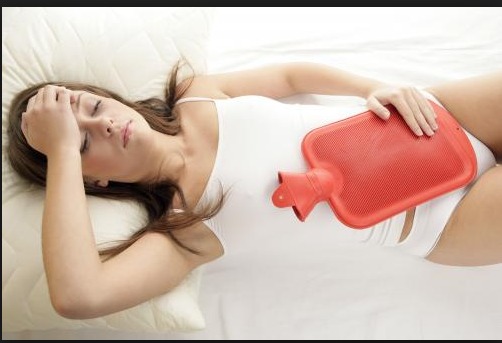From the time you get your period, you’re tracking it; I know patients who plan sex, their vacations, even their outfits around their cycles. And then sometimes…it changes. Of course that would spark questions! Here’s what to know before you freak out.
If Your Period Is Suddenly Heavier
Bleeding so much you need double your usual pads or tampons? If one period is crazy heavy, wait it out, but if a few in a row are, you may have developed a polyp or fibroids in your uterus. Sounds scary, but these benign growths are more of a nuisance than a danger. Or you may be experiencing a hormonal imbalance in your thyroid or pituitary—also completely treatable. Your doctor can order blood tests or an ultrasound to figure out the cause.
Bleeding so much you need double your usual pads or tampons? If one period is crazy heavy, wait it out, but if a few in a row are, you may have developed a polyp or fibroids in your uterus. Sounds scary, but these benign growths are more of a nuisance than a danger. Or you may be experiencing a hormonal imbalance in your thyroid or pituitary—also completely treatable. Your doctor can order blood tests or an ultrasound to figure out the cause.
TRENDING CONTENTS
If It’s Erratic
An adult’s cycle can range anywhere from 21 to 35 days (and in teens, up to 45 days). Some women never have that regularity, which is fine, but if your periods are becoming more random—or if you’re suddenly skipping two months (or more)—tell your doctor. The most common cause is polycystic ovarian syndrome, or PCOS, which often hits women in their twenties. It’s a complex condition, so a doctor should confirm the diagnosis and best treatment for you. (If you’re using a hormonal form of birth control and occasionally skip a period, that’s normal. Sometimes the hormones do such a good job of thinning out your uterine lining that you don’t bleed at all!)
An adult’s cycle can range anywhere from 21 to 35 days (and in teens, up to 45 days). Some women never have that regularity, which is fine, but if your periods are becoming more random—or if you’re suddenly skipping two months (or more)—tell your doctor. The most common cause is polycystic ovarian syndrome, or PCOS, which often hits women in their twenties. It’s a complex condition, so a doctor should confirm the diagnosis and best treatment for you. (If you’re using a hormonal form of birth control and occasionally skip a period, that’s normal. Sometimes the hormones do such a good job of thinning out your uterine lining that you don’t bleed at all!)
If You’re Spotting After Sex
Any amount of blood after sex can be scary. If it’s a relatively rare thing, though, you don’t need to worry. Happening often? Head in for a checkup. It could be an infection like bacterial vaginosis, a cervical polyp, or a sign of an STI.
Any amount of blood after sex can be scary. If it’s a relatively rare thing, though, you don’t need to worry. Happening often? Head in for a checkup. It could be an infection like bacterial vaginosis, a cervical polyp, or a sign of an STI.
If It Just Doesn’t Stop
Birth control is usually the culprit. Breakthrough bleeding is especially common with a new method, but it usually resolves on its own: after two to three months on the Pill, or three to six months with an IUD. If the bleeding doesn’t improve in that time frame, talk to your gyno about switching methods. And if you’ve been on your birth control for a long time and start spotting, your doctor should know that too—the bleeding could be caused by an infection or a benign growth.
Birth control is usually the culprit. Breakthrough bleeding is especially common with a new method, but it usually resolves on its own: after two to three months on the Pill, or three to six months with an IUD. If the bleeding doesn’t improve in that time frame, talk to your gyno about switching methods. And if you’ve been on your birth control for a long time and start spotting, your doctor should know that too—the bleeding could be caused by an infection or a benign growth.
If It’s…MIA
First, take a pregnancy test. But if you’re not pregnant or on a hormonal birth control, and you’ve gone three months or more without a period, it’s time to be evaluated. The most common cause in your twenties and thirties is PCOS, and early diagnosis is the best way to manage symptoms. (In your forties, it could be perimenopause.) If you have an IUD or the contraceptive implant, though, having your periods stop is common. I tell my patients: Enjoy not having to buy tampons!
First, take a pregnancy test. But if you’re not pregnant or on a hormonal birth control, and you’ve gone three months or more without a period, it’s time to be evaluated. The most common cause in your twenties and thirties is PCOS, and early diagnosis is the best way to manage symptoms. (In your forties, it could be perimenopause.) If you have an IUD or the contraceptive implant, though, having your periods stop is common. I tell my patients: Enjoy not having to buy tampons!
Dr. White is an assistant professor of obstetrics and gynecology at Boston University.






